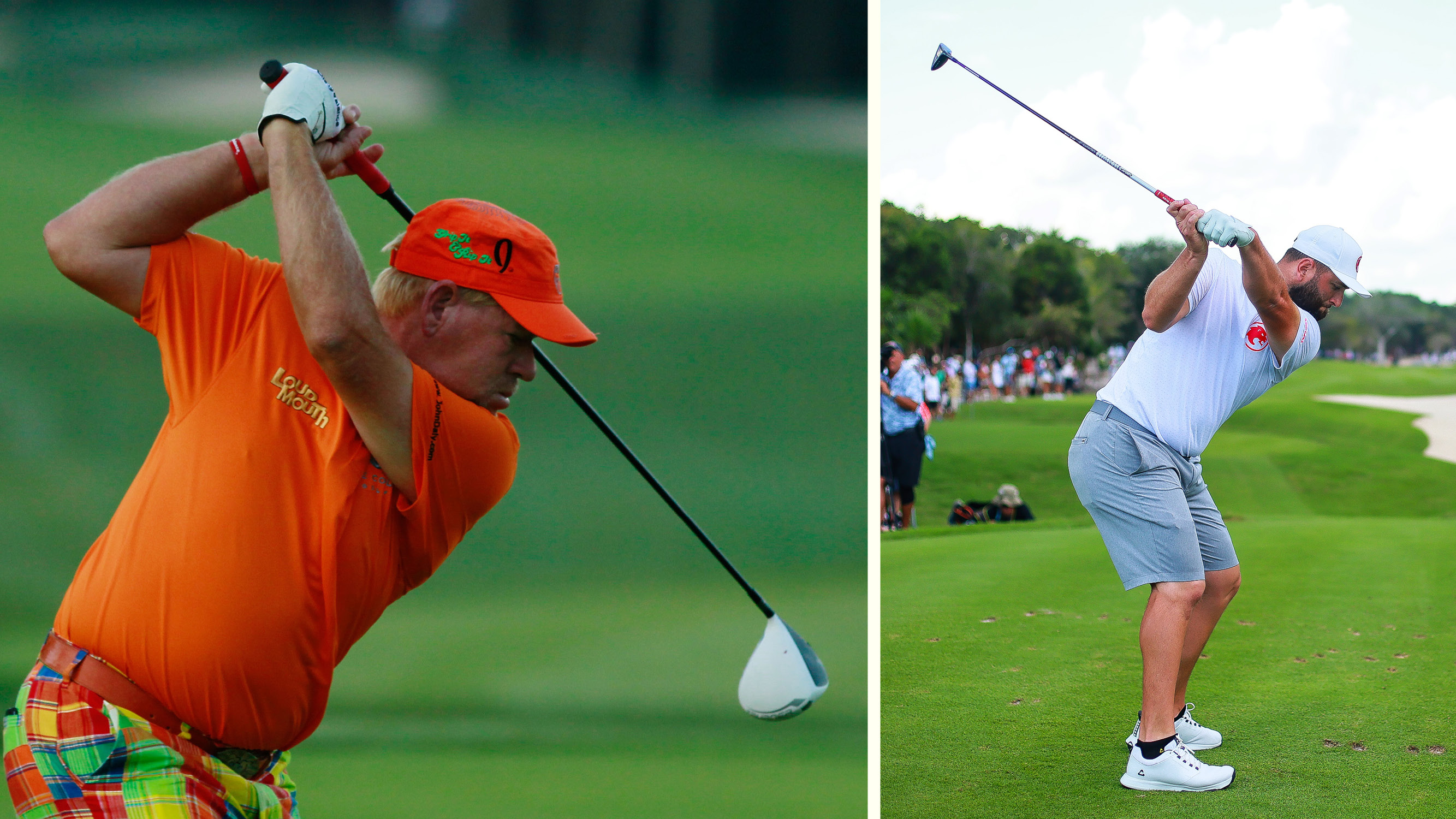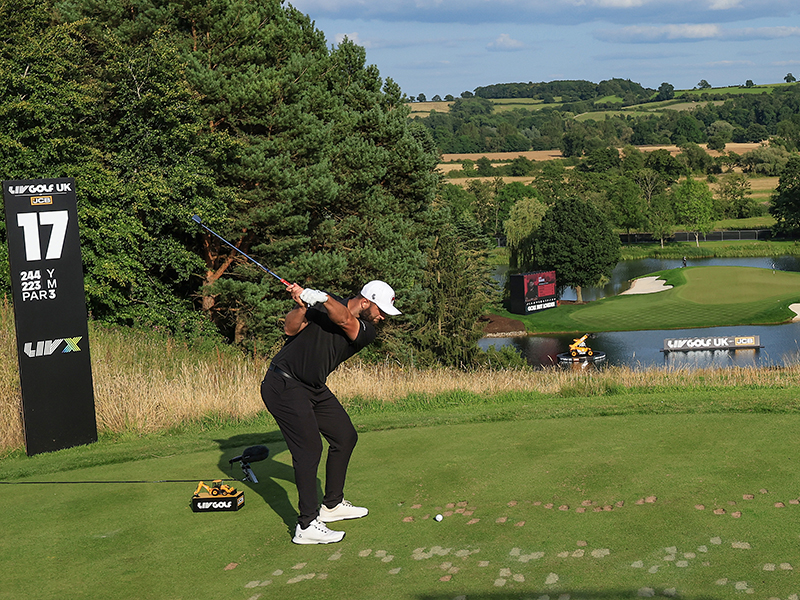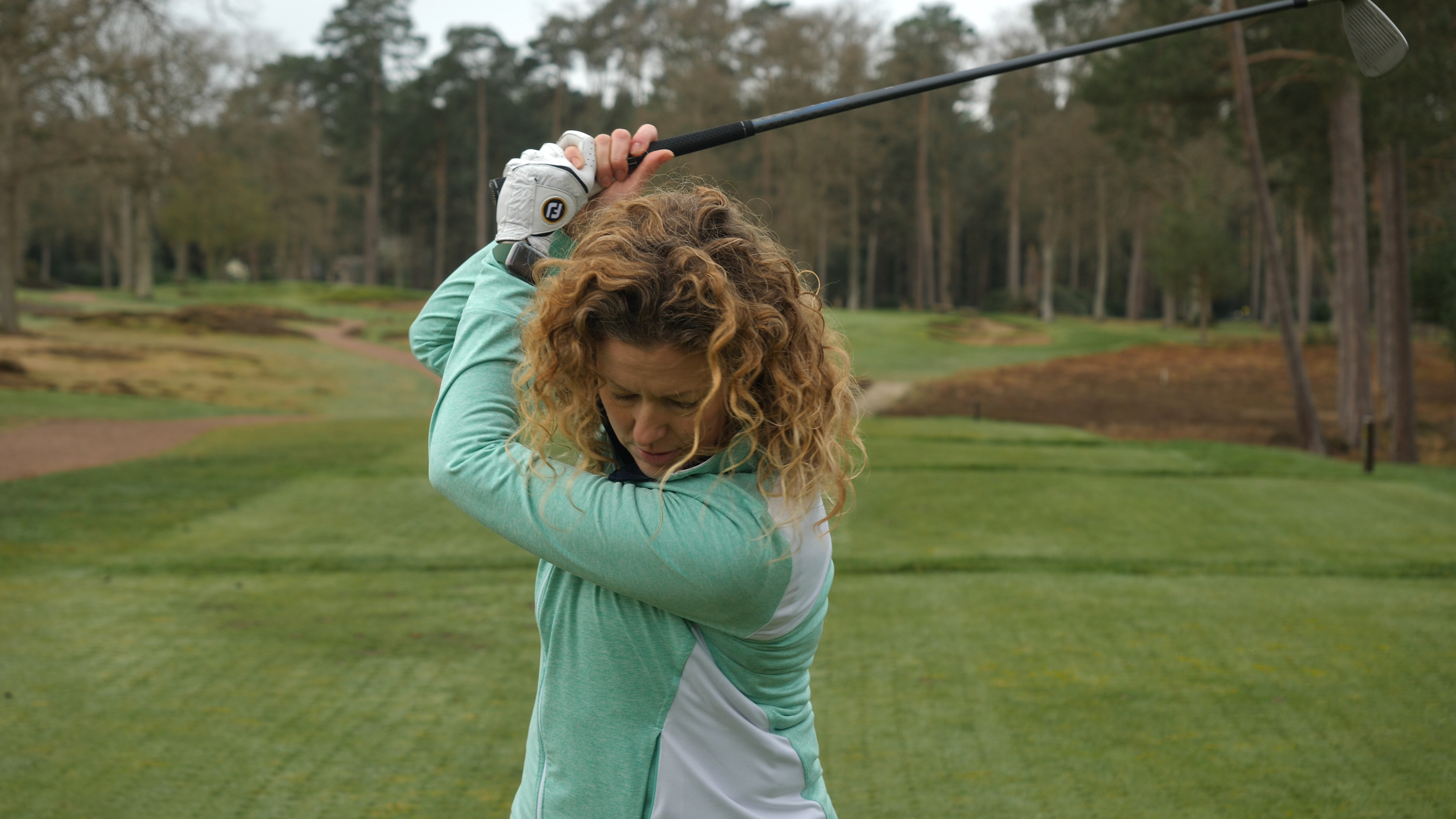
The top of the backswing is a pivotal point in the golf swing, but even in the professional game we see players reach a variety of different positions.
If you invest time ensuring you have nailed the key aspects of the set-up, like the perfect golf grip and ball position, it would be foolish to waste those wins on a poorly executed backswing.
In this article, Golf Monthly Top 50 Coach Gary Alliss discusses how long your golf backswing should be and outlines a few of the main faults relating to this fundamental position...
How Long Should Your Golf Backswing Be?
It can be easy to over-analyse the backswing, and many amateur golfers obsess over the 'correct length'. The truth is, there is no one-size-fits-all approach. You only have to look at two of the best Johns (or Jons) to play the game, with both Daly and Rahm wielding their clubs to great effect with very different backswing profiles.
John Daly secured two Majors and forged a reputation as one of the best drivers of the golf ball in the world back in the 1990s, all while demonstrating a massive overswing. While this certainly isn't conventional, and many coaches wouldn't teach it, the swing worked brilliantly for him.
At the other end of the spectrum, Jon Rahm has become one of the most iconic players in the game in recent years. The multiple-Major Champion doesn't get his driver (or any other club for that matter) even close to parallel at the top of the backswing, but his success completely speaks for itself.
Clearly, Jon Rahm and John Daly are elite golfers who at various times sat towards the top of the professional game, so it would be ill-advised to assume that their experiences relate to those of the average amateur golfer.
Many common faults can see amateur golfers lengthen or shorten their backswing, often making it difficult to start and co-ordinate the downswing effectively.

1. Tension
A backswing that could be considered too short can be caused by tension at address and gripping the club too tightly. This will make it hard for your wrists to hinge effectively and for your arms to move as efficiently.
As a consequence, it'll be difficult to keep your arms and body in sync on the way down, which will cheat you of both power and control. Instead, try to relax at address, settling into a comfortable position and ridding yourself or unnecessary tension.
2. Elbow collapse
The opposite can happen when a golfer excessively bends their left elbow (for right-handers) at the top of the backswing. This makes the swing look very long and creates a very weak position. Again, coordination on the way down will be hard to find.

It won't be a quick fix but working on how to get a straight left arm in your golf swing will help you reclaim some of the power and accuracy you've been sacrificing. Don't worry if this shortens your backswing.
3. Excessive heel lift
In similar fashion, some players excessively lift the heel of their front foot to lengthen their backswing. For right-handers, this can make the top of your backswing look like a left-hander's finish position. Again, this is likely to result in a loss of power and consistency.
That's not to say you can't lift your heel off the ground. After all, it's something plenty of Major champions have done in the past. The important thing is to make sure you're not overdoing it to the detriment of your game.
Ultimately, there is no set backswing length. Instead, the most important thing is to make a good, full turn (whatever that looks like) and shift your weight properly. This will put you in the best position for the downswing sequence and to execute the shot at hand, which is the most important thing.







